Happy Friday the 13th, folks! Put on your tin foil hats because today is a very special Friday Product Post. Today we are proud to release our new Lumenati product line! Currently we have six unique boards to cover with varying numbers of LEDs and connection types to fit any need you may have for them. Each of these boards was designed by our very own Pete Dokter, who introduced these handy little boards just a few days ago. Without further ado, let's take a closer look at what we have!
Why don't you just ruminate, while we illuminate the possibilities!
Designed to give your projects an edge in their lighting capacity, the SparkFun Lumenati 4-pack is a coin-sized board equipped with four APA102C LEDs surrounding the outer edge. The 4-pack board can be daisy-chained with other Lumenati boards, thanks to the multiple SMD pads on the back allowing for multiple design options and formations.
If you need a few more LEDS, the SparkFun Lumenati 8-pack is a great choice! The 8-pack doubles the number of APA102Cs on the board, but other than that it's extremely similar to the smaller 4-pack with its daisy-chaining abilities and SMD pads.
The SparkFun Lumenati 8-stick is a small board equipped with eight APA102C LEDs in a row and two mounting positions. The 8-stick board has been specifically designed to be daisy-chained with other Lumenati boards, thanks to the castellated edge connectors at each end allowing for multiple design options and formations.
The Lumenati 8-stick can also be combined with the 90R and 90L boards (shown below) to create outlines of different shapes and sizes.
The SparkFun Lumenati 90R is a quarter-circle board equipped with three APA102C LEDs and a single mounting position. Like the 8-stick, the 90R is equipped with castellated edge connectors at each end.
The Lumenati 90R gets its name from the 90° angle it takes and the direction the signal and power flow. Combining four of the 90R boards creates a 12-LED ring with enough space in the center for a Lumenati 8-pack board. If you want to create more than just a small ring, you can also solder on 8-stick boards to the 90R to create outlines of different shapes and sizes.
The SparkFun Lumenati 90L is exactly like the 90R, except your power and signal flow the opposite direction. Combining four of the 90L boards creates a 12-LED ring with enough space in the center for a Lumenati 8-pack board, and it too can be combined with the 8-stick to make new designs.
Last up today is the SparkFun Lumenati 3x3. This rectangular board is equipped with nine APA102C LEDs arranged in a 3x3 array. Unlike the other Lumenati boards, the 3x3 does not have SMD or castellated connectors; instead we have designed this board to utilize basic 0.1" spaced pins.
Alright, folks, that's it for today! We hope you enjoy our new Lumenati boards and the capabilities of their customization and variety. As always, we can't wait to see what you make with these parts! Shoot us a tweet @sparkfun, or let us know on Instagram or Facebook. We’d love to see what projects you’ve made!
Thanks for stopping by. Unless you are coming to AVC tomorrow, we’ll see you next week with even more new products!
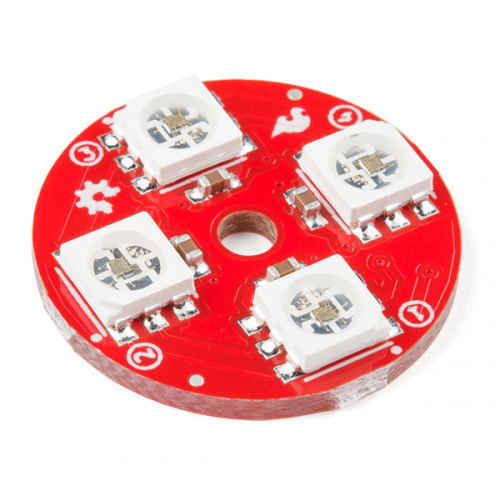
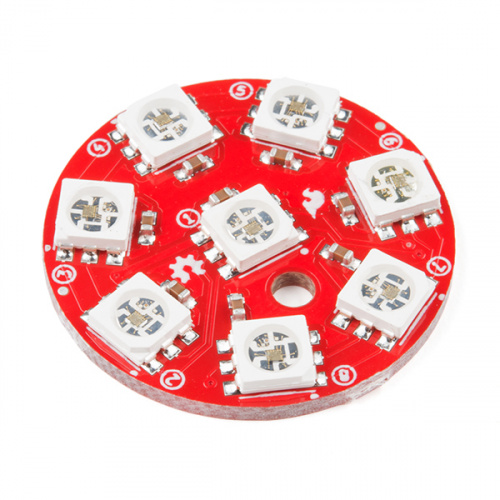
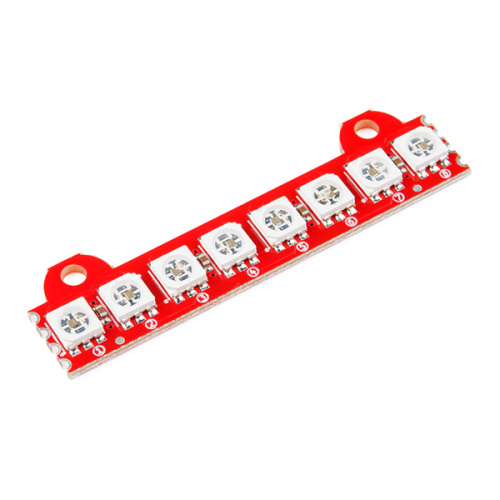
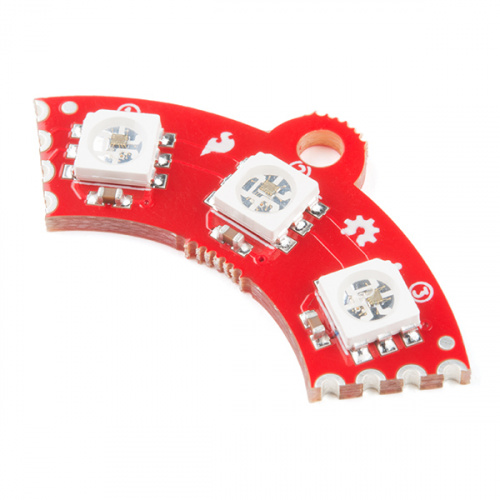
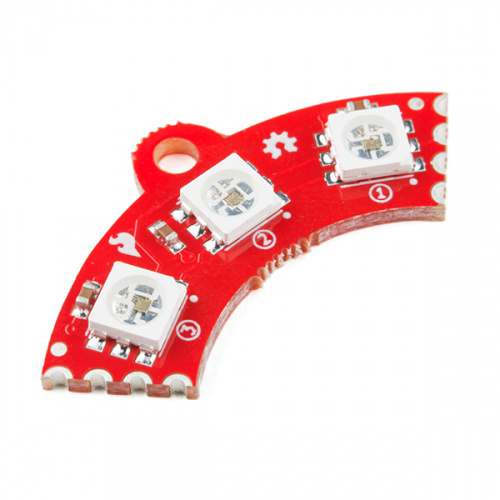
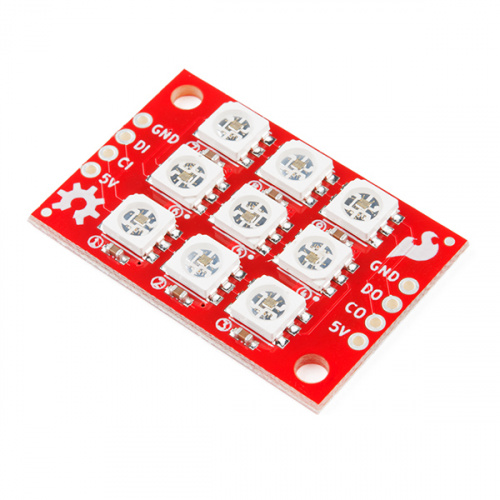
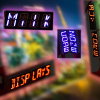





I just noticed the design files are Kicad instead of Eagle. Was this a one time thing or is SF migrating to Kicad?
wow...guys you are really awesome. I really like your every new product. Thank a lot for launching that great product.
hola quiero aprender a hacer una pantalla para mi acuario, alguien me puede ayudar ?
For those playing at home, these are the same LED module (APA102C) as what a competitor calls "DotStar". But the pinouts aren't compatible. These are GND-Data-Clock-5V and the DotStar flexible strip (at least the 60LED/meter strip that I looked at) are GND-Clock-Data-5V. Just be aware of this when mixing and matching between vendors.
Yeah, APA102 strips seem to be all over the place when it comes to which order Clock and Data are in. I have one of those DotStar strips, which was G-C-D-5 in its product shots, but mine is G-D-C-5. Just to make things worse, the APA102 port on the Teensy Prop Shield is also G-C-D-5...